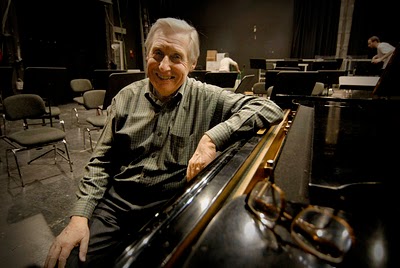FrontRow: A Seasoned Performer and Teacher, Joaquín Achúcarro’s Career Is Just Getting Started
D Magazine's FrontRow section interviews Joaquín Achúcarro, the Joel Estes Tate Professor of Piano in SMU’s Meadows School of the Arts.
By Peter Simek

FrontRow: Right after this interview you are going to be choosing a piano for tonight’s performance. Is there something you look for specifically in the pianos you like to perform with?
Joaquín Achúcarro: It depends on what kind of a hall I have. If I have a small hall, I want a soft tone, something which, you can make a piano sing. If the hall is big, and especially if you play with an orchestra, then the piano has to be more brilliant. But these are minor issues. If you have a good piano technician, as the Dallas Symphony has, then I’m sure I will have a good piano.
FR: The piece you’ll perform tonight, Chopin’s Piano Concerto No. 2, I’ll assume you’ve played it many, many times. What is it like coming back to it again and again?
JA: Any masterpiece I come back to again and again and I am happy – and happier and happier to go back to it. It is incredible because you thought that you have exhausted your possibilities of understanding the piece, and again you discover something hidden and marvelous that the composer has put there and maybe the first time you overlook them because maybe you were concerned with other problems. It is great to me. Have you been in the Prado? Have you been in the SMU Meadows Museum? How many times would you walk by the portrait of Queen Mariana ofAustriaand try to discern how many brushstrokes Velasquez has given it? How many times have you read again something of Shakespeare? When you hit a masterwork, it is endless.
# # #